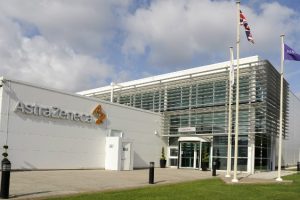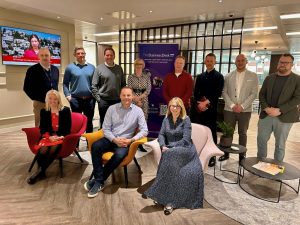Burnham calls on business to offer work placements to young people on technical pathway

The Mayor of Greater Manchester, Andy Burnham, is seeking high level partnerships with businesses to commit to offering work placements and training pathways to school students as part of technical education revolution in the city region.
Burnham wants to go further than the Trailblazer Devolution Deal, which gives Greater Manchester will have further oversight of post-16 technical skills, by creating a new Greater Manchester wide curriculum – the Manchester Baccalaureate (MBacc) that can guide young people when they make their GCSE choices – one academic and one focussed on technical career in key sectors requiring skilled jobs in the local economy.
Currently, almost two-thirds of 16-year olds in Greater Manchester do not pursue or achieve an EBacc and an MBacc is designed to plug that gap.
The target sectors for the MBacc, earmarked to start in September 2024 are Engineering and digital with subjects like Engineering, Business Studies and Art and Design alongside the core of Maths, English and Computer Science – or an ICT equivalent. A consultation with government and local partners would take place on the proposed MBacc route subjects.
Burnham is also offering the government a lifeline for its struggling T Levels standard by creating seven different career gateways at age 16 which including: Manufacturing and Engineering; Financial and Professional; Digital and Technology; Health and Social Care; Creative, Culture and Sport; Education and Early Years; and Construction and Green Economy.
Burnham hopes each of the gateways will lead to a group of quality T Levels, accompanying work placements and other technical qualifications. Currently, 16 to 18-year-olds can take T Levels at 24 approved providers in the city-region, with more qualifications set to become available over the next few years.
The government have struggled to persuade colleges and employers to participate in T Levels, which require a mix of workplace and classroom learning. In February they introduced a fund to offer incentives of up to £25,000 for employers to co-operate through an Employer Support Fund.
Burnham also wants to “enhance” the Greater Manchester’s Apprenticeship and Careers Service (GMACS) which he calls a UCAS system for apprenticeships.
In December Burnham first made the case to government for skills devolution and was joined by GM Chamber of Commerce chief executive Clive Memmott in committing toa ‘system-wide’ approach to addressing skills shortages and employer buy-in.
The bold plans for technical education will require buy-in from employers in the city-region to match the skills needed in Greater Manchester’s economy through the creation of employer boards, ensuring a clear line of sight to the great jobs available in the city-region. There would also be the creation of further workplace experiences, curriculum enrichment and other opportunities that support the development of soft skills and entry to the world of work.
Burnham said: “For too long we have ignored the value of technical skills and that ends today in Greater Manchester. We want to create equivalent opportunities for our young people in Greater Manchester and ensure they are provided with the tools to achieve their career aspirations, with the idea of an MBacc, developing our GMACS offer and through partnership working with employers.
“The EBacc is great for young people who want to go onto university, but there is no equivalent suite of qualifications at 14 and 16 that align with the real-life employment opportunities being created in our city-region. There is also no direct link to employers, leading to skills gaps in the Greater Manchester economy and confusion from young people on what they need to do to secure a job in their chosen industry. Today is the start of the journey of creating a clear and equal pathway for technical education.”
Oversight of post-16 technical education and skills builds on the devolution of the Adult Education Budget (AEB) which saw the city-region take on responsibility for adult skills back in August 2019, and GM Working Well (Work & Health Programme), part of a suite of employment support programmes that help people with health conditions to move towards or into sustained work.








